|
Goodbye from the ENERGISE team
|
|
|
|
Dear Readers,
Welcome to the final issue of the ENERGISE newsletter!
In recent months, our team has been busy with finalizing project outputs, developing a summary publication as well as policy briefs. It was also great to see many of you at our final ENERGISE event in Barcelona.
Our final newsletter is dedicated to summarizing the various ENERGISE resources available open access to anyone.
Wishing you a nice holiday period and in the hope of continued cooperation in furthering low-carbon lifestyles,
GreenDependent Institute, on behalf of the ENERGISE consortium
|
|
|
Learn about ENERGISE: watch our video!
|
|
|
|
This video summarizes the whole ENERGISE process, including the theoretical framework, thoughts about the database of sustainable energy initiatives, the design and implementation of individual and community ENERGISE Living Labs, outcomes of the heating and laundry challenges, etc. Enjoy watching it!
|
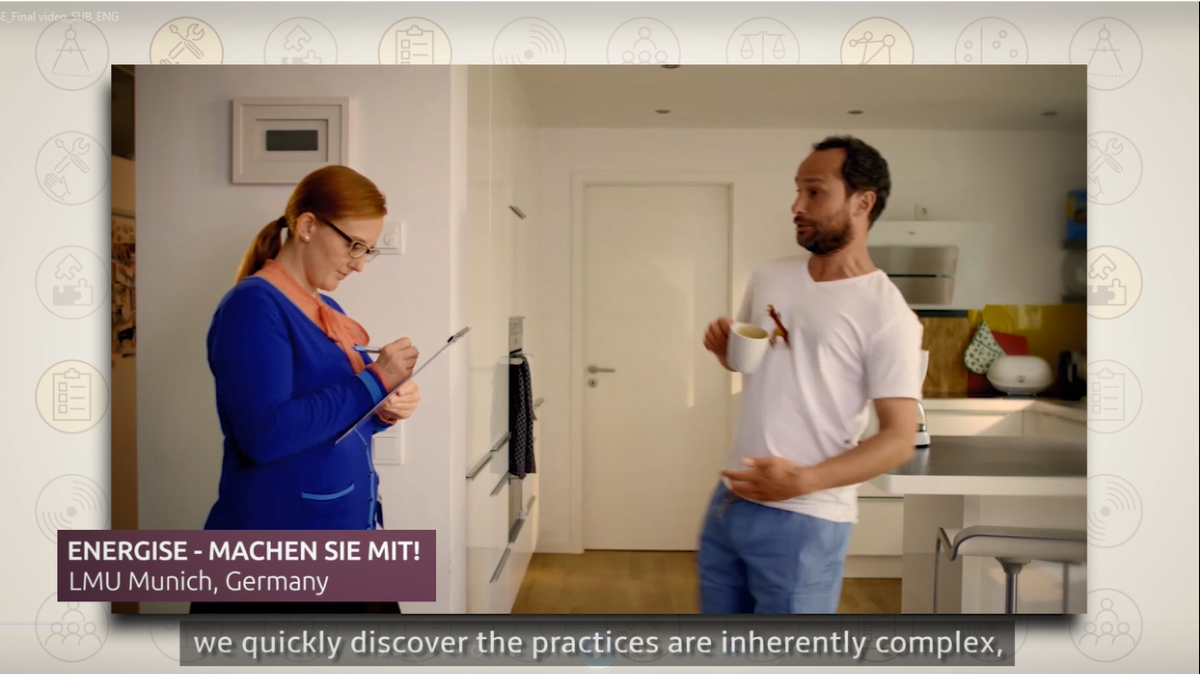
|
|
|
ENERGISE outcomes and resources
|
|
|
E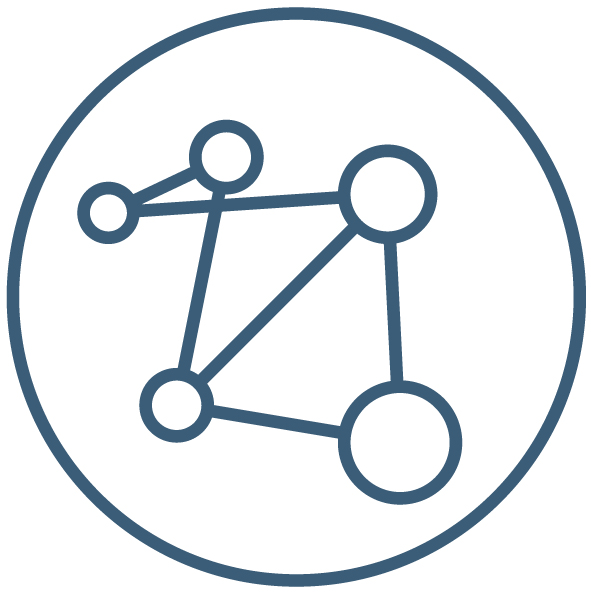 NERGISE Theoretical framework - Everyday practices, cultural conventions and energy use NERGISE Theoretical framework - Everyday practices, cultural conventions and energy use
The revised conceptual framework document of the ENERGISE project outlines the following three primary aims: (i) to provide a detailed account of how everyday practices and their cultural shaping influence household energy consumption; (ii) to identify and describe different dynamics and trajectories of change, and finally (iii) to outline opportunities for practice-oriented and culturally sensitive forms of social inquiry to finding practical ways to replace energy-intensive everyday practices with less resource-intensive ones..
Read more here.
|
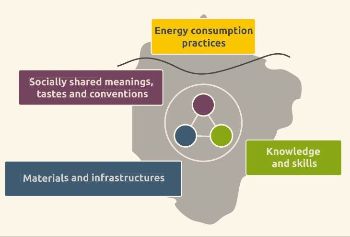
|
|
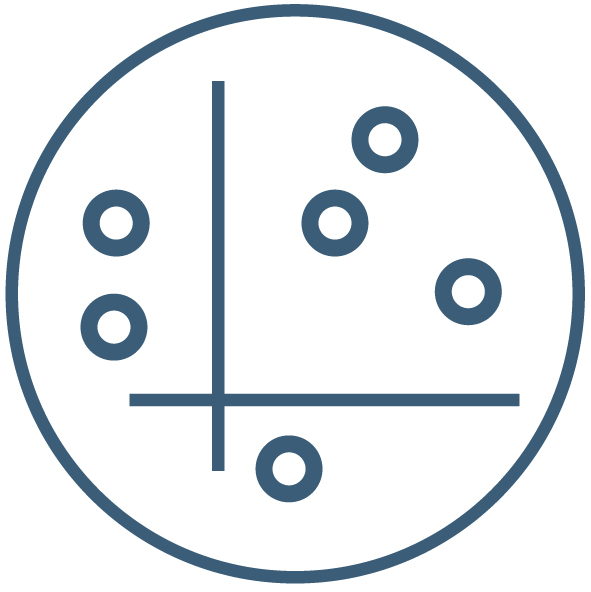 Database and typologies of Sustainable Energy Consumption Initiatives Database and typologies of Sustainable Energy Consumption Initiatives
Within Work package 2 of ENERGISE, a systematic criteria-guided classification of existing sustainable energy consumption initiatives (SECIs) from 30 European countries made available the most comprehensive database of European sustainable energy consumption initiatives and subsequent development of typologies. 18 months of research and data collection has resulted in six state-of-the-art deliverables and an open access database.
Read more here.
|
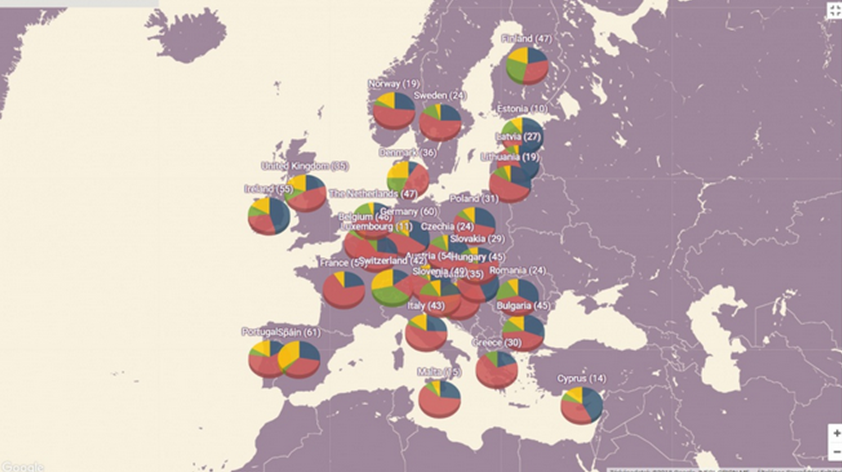
|
|
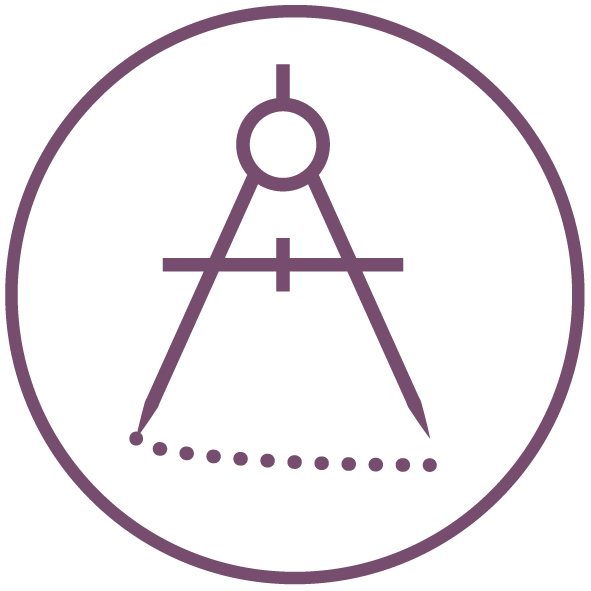 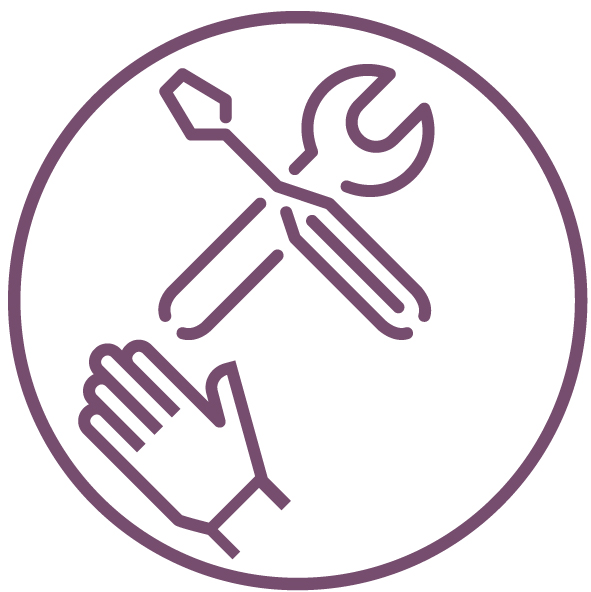 ENERGISE Living Lab materials are available open access! ENERGISE Living Lab materials are available open access!
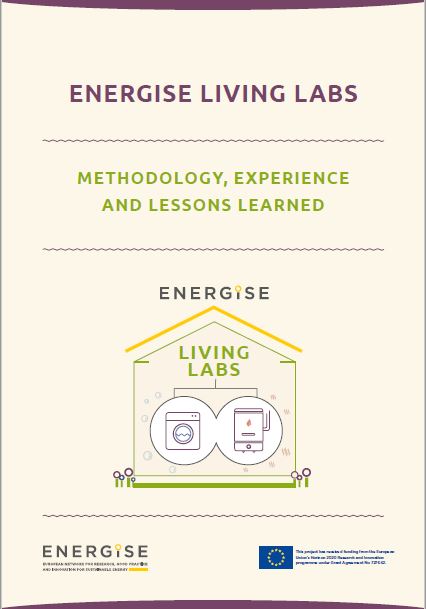 The ENERGISE team, lead by the WP3 team at the University of Helsinki, has been developing the online tools and user community for scaling up ENERGISE Living Labs (ELLs). Based on the feedback obtained from WP4 (Implementing ELLs) and WP5 (Comparing ELLs), feedback from households who participated in the ELLs, and continual engagement with the Programme Board and the Expert Panel, the initial design of the ELLs has been elaborated and the online tools and an online user community have been developed for scaling up, designing, implementing and evaluating a host of ENERGISE Living Labs across Europe. Read more here. The ENERGISE team, lead by the WP3 team at the University of Helsinki, has been developing the online tools and user community for scaling up ENERGISE Living Labs (ELLs). Based on the feedback obtained from WP4 (Implementing ELLs) and WP5 (Comparing ELLs), feedback from households who participated in the ELLs, and continual engagement with the Programme Board and the Expert Panel, the initial design of the ELLs has been elaborated and the online tools and an online user community have been developed for scaling up, designing, implementing and evaluating a host of ENERGISE Living Labs across Europe. Read more here.
|
|
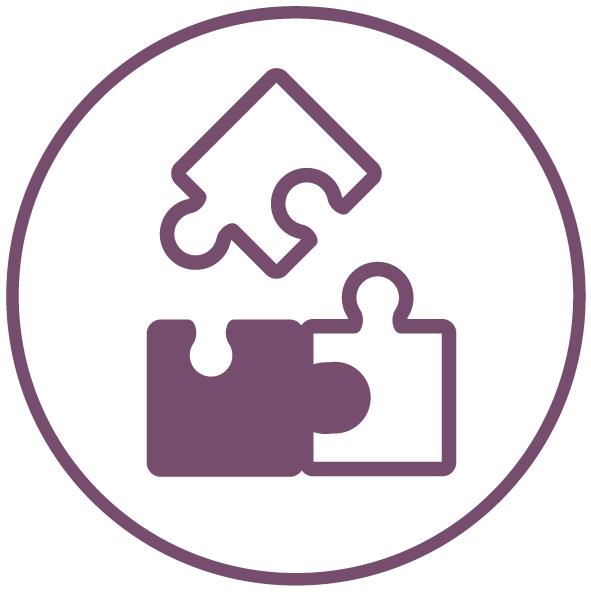 ENERGISE Living Labs: analysis and outcomes ENERGISE Living Labs: analysis and outcomes
Giving people space to go outside of their comfort zones through forms of experimentation like Living Labs creates opportunities for them to try out new approaches to everyday life, in a set space and limited time period, towards a goal. In the ENERGISE project the challenges were presented as a social learning process, and not a competition. The objective was to learn together, with an explicit focus away from �energy saving� as the sole aim, through a deliberative and reflexive process. Read more here.
|
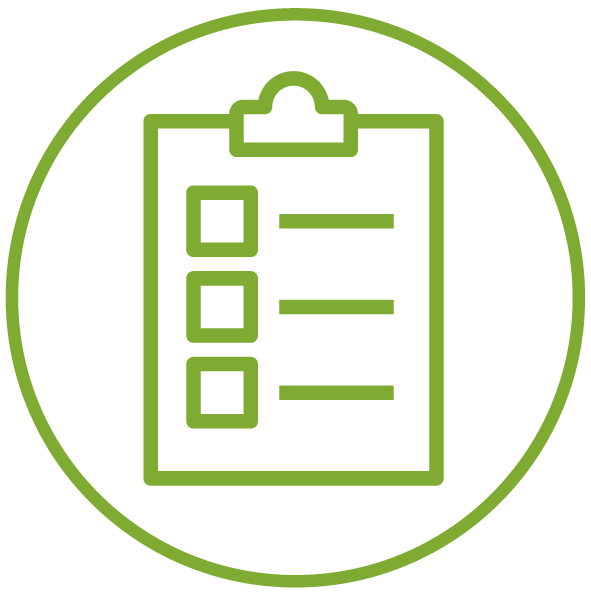 ENERGISE policy briefs ENERGISE policy briefs
One of the aims of the ENERGISE project was to integrate, synthesise and translate ENERGISE findings for public- and private-sector decision-makers and practitioners, delivering research-led recommendations for further advancing the Energy Union. Thus, the ENERGISE team have formulated recommendations for various stakeholders... Read more here.
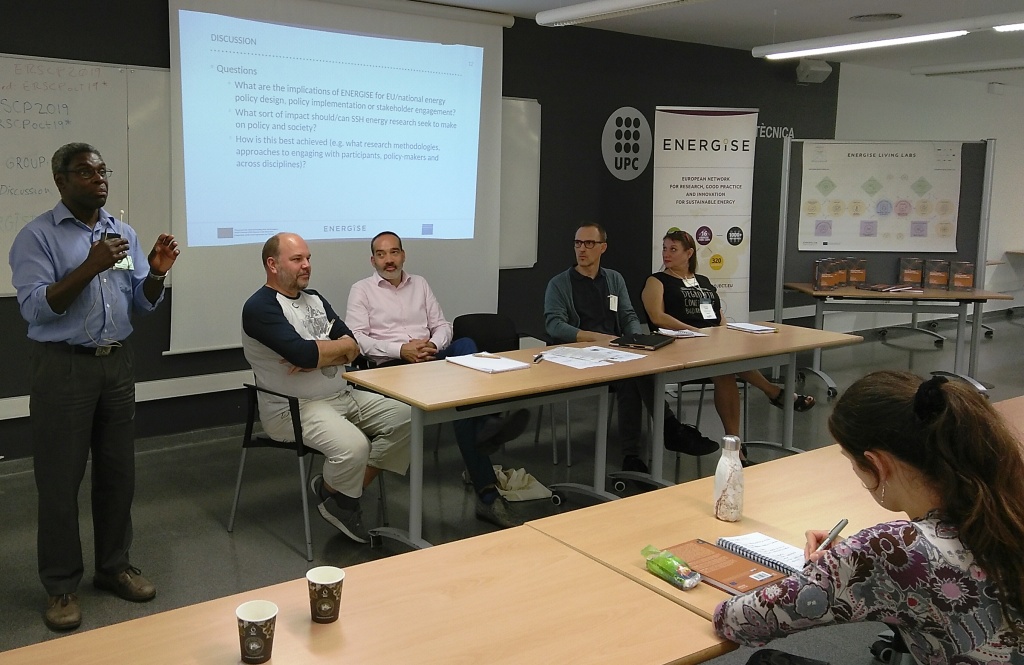
|
|
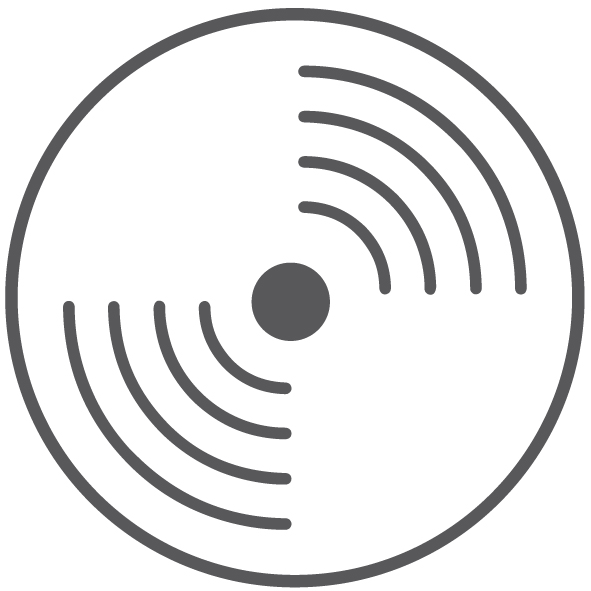 ENERGISE final event: what have we learnt and found during the 3 years of the project? ENERGISE final event: what have we learnt and found during the 3 years of the project?
The final conference of the ENERGISE project was organized in Barcelona and preceded the ERSCP 2019 conference. It was designed to communicate and disseminate the project results, as well as to link and exchange information with researcher and expert communities engaged in similar projects. The conference was attended by academics, researchers, policy-makers, practitioners, students, business representatives, NGO representatives and others. The conference programme included presentations from ENERGISE team members as well as a policy-orientated session with contributions from 5 �sister� projects (i.e. other EU H2020-funded projects with similar aims and objectives). Read more here.
|
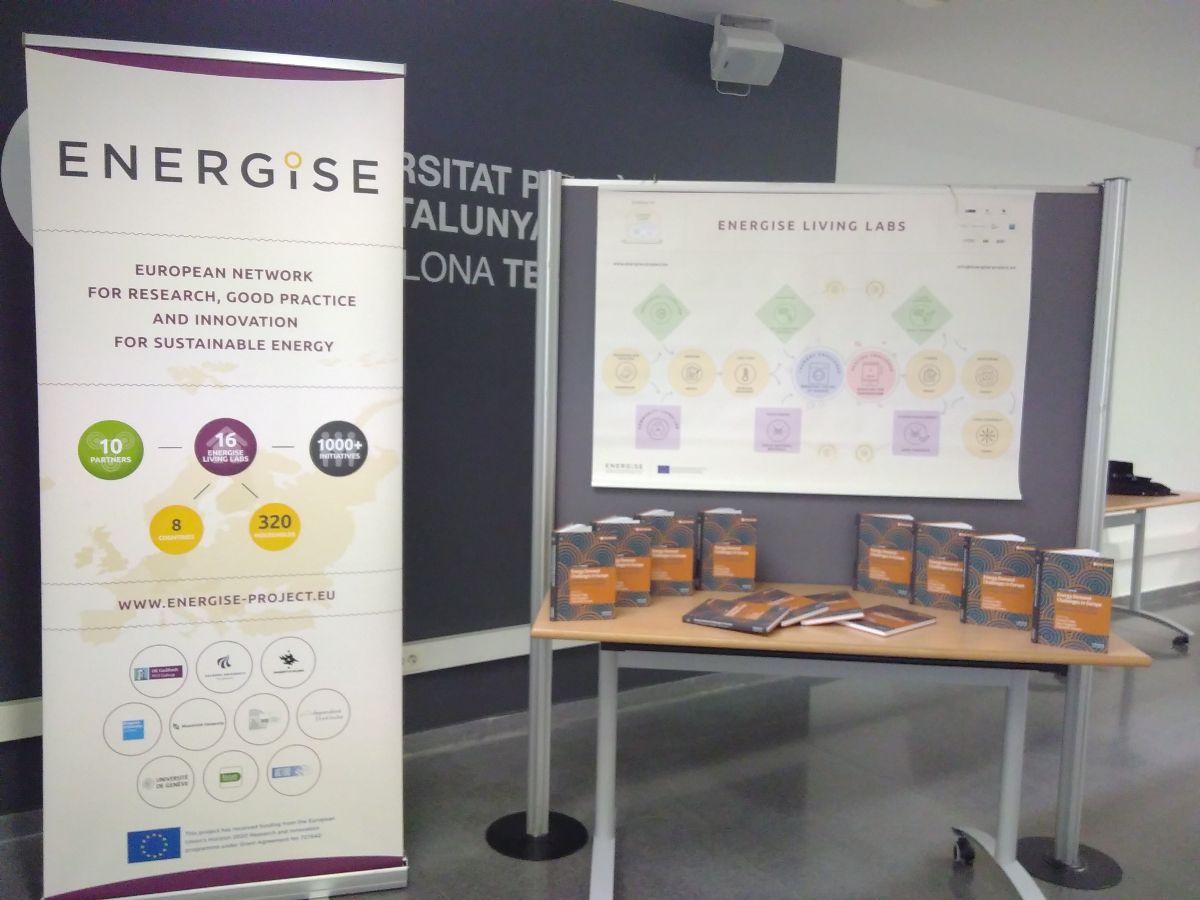
|
|
 Involving Households in Energy Change: summary handbook of the ENERGISE project available Involving Households in Energy Change: summary handbook of the ENERGISE project available
This handbook provides a summary of the ENERGISE project from theory through implementation and analysis to recommendations for policy, research and practice. Read more here.
|
|
|
|
The future of ENERGISE ...
|
|
|
Taking ENERGISE further - ensuring continued impact
As ENERGISE nears its completion date at the end of November, the ENERGISE team is considering and working on ways to ensure it has a longer term impact. One way to achieve this through the ENERGISE resources made available online, for example the ENERGISE policy briefs, our open access ENERGISE Living Lab materials, papers, deliverables, etc. Another way is to proactively respond to different needs expressed by our stakeholders. We introduce a few examples for this. Read more here.
|

|
|
|
Keep in touch with ENERGISE through SCORAI Europe
|
|
|
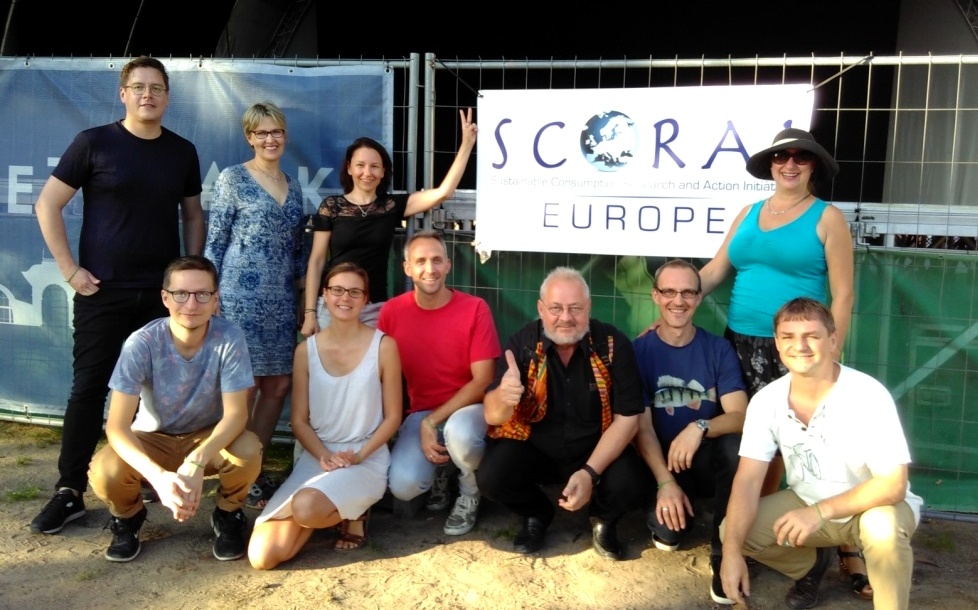
|
Want to keep in touch? Join SCORAI Europe!
In some ways, the ENERGISE project is an offspring of SCORAI Europe. Several researchers and practitioners in the ENERGISE project consortium as well as the ENERGISE Expert Panel have been long-term members of the SCORAI Europe community and have also been actively involved in the work of the organizing committee. So, what is SCORAI Europe? Read more here.
|
|
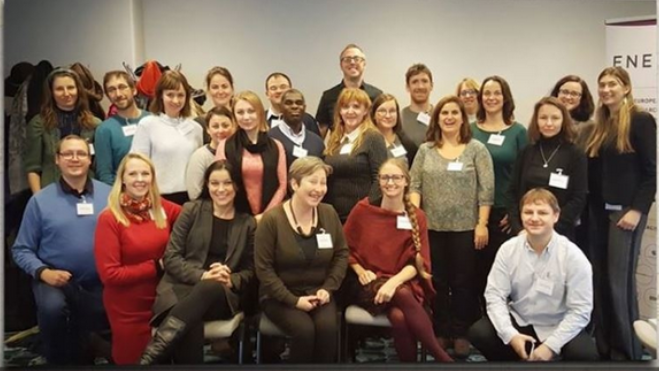
|
|
The ENERGISE team
|
|
|
|
|
